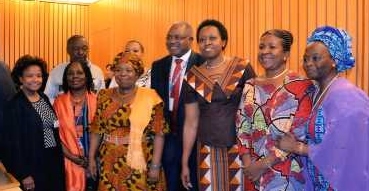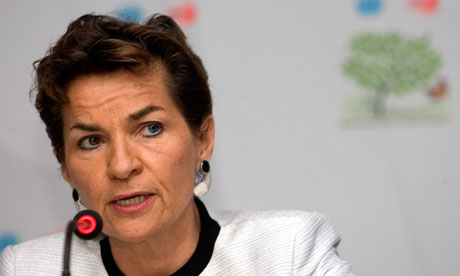The New Delhi-based Centre for Science and Environment (CSE) has described the United State’s climate action plan – the Intended Nationally Determined Contributions (INDCs) – as grossly inadequate. It also sees US, which has a history of being the world’s largest polluter of the environment, as doing less to address climate change.

A release issued by CSE on April 1, 2015, observed that the INDCs was a replication of “its earlier pledge made in November 2014, which is “neither fair nor ambitious, and way short of what is needed to keep global warming under 2 degree centigrade.”
According to experts at CSE, “In its mitigation-centric INDC, the US commits to cutting greenhouse gases by 26-28 per cent by 2025 against the 2005 level. What this essentially means is that the greenhouse gas (GHG) emissions of the US in 2025 will be 5 billion tonnes of carbon dioxide equivalent (CO2e). Its per capita emissions would be 14 tonne CO2e in 2025. In comparison, in 2025, India’s total emissions will be about 4 billion tonne and its per capita emissions will be less than 3 tonne.”
CSE further observes that although the US mentions Clean Air Act, Energy Policy Act, and Energy Independence and Security Act, “it has no data on sector-wise emissions and the INDC is thin on details on how the target is going to be achieved.
“The US INDC is even less ambitious than what was pledged in Copenhagen when the US had said they would be on the pathway to a 30 per cent reduction in 2025 and a 42 per cent reduction in 2030. This pledge falls short of even that weak target. And this is when the world is witnessing extreme weather events and unprecedented calamities attributable to climate change.” Sunita Narain, director general of CSE said of US.
The statement compared the 26-28 percent reduction over 2005 as amounting to 15-17 percent over the 1990 levels. “In comparison, the European Union will reduce its emissions by at least 40 percent (by 2030) – more than double that of the US.”
CSE however estimated that to meet the 2°C target, “US emissions should be at least 50-60 per cent below 1990 levels, considering its historical responsibility of causing climate change and its present capability of solving it.”
The Centre observed that the actual reduction of emissions by the US would be much lesser than the 26-28 percent reduction because “the US target involved all greenhouse gases as well as offsets from CO2 absorption from sinks such as forests and land use changes.”
It also lamented the non-reference in the INDC as to how the US planned to fund its pledge of USD$3 billion to the Green Climate Fund, which is aimed at supporting the climate change plans of developing countries. “The Fund has received less than one percent of the promises made till date.
“Ironically, even these shallow commitments on the part of the US lack support domestically and the Republicans are strongly opposed to policies and Acts for climate change; particularly the rules on curbing pollution from power plants and federal policy on renewable energy,” CSE stated.
It decreed the Republicans and industry groups’ attempt to undercut proposed US Environmental Protection Agency power plant regulations as well as pursuing court challenges and by urging states not to comply.
“The shoddy efforts to cut corners on the part of countries historically responsible for and with the maximum capacity and resources to deal with climate change, only mean that it is certain that the world will go over the 2 degree C target. Thanks to countries like the US, the world would be forced to gear up for more catastrophic and irreversible climate change impacts,” Chandra Bhushan, deputy director-general of CSE concluded.
By Abdallah el-Kurebe (Regional Editor, Newswatch Mag., +2348065887777; Skype: damyiloh)










